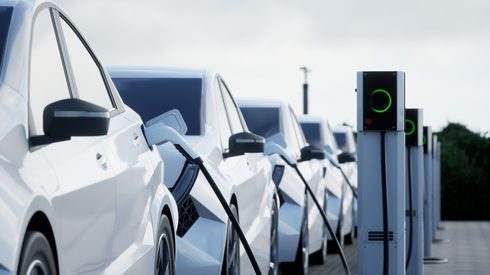On Monday March 13, it was reported that India’s northern federal territory of Jammu and Kashmir is to auction off a 5.9 million tonne resource of lithium recently discovered in the area. This was the first discovery of a major lithium deposit in the country.
In 2021, India found its first-ever local lithium deposit, totaling 1,600 tonnes, in the southern state of Karnataka.
The country’s government has ambitious plans for the country’s electric vehicle (EV) market and lithium is a key raw material used in EV batteries. But there is “still a long way to go [for the recent lithium resource discoveries] to equal domestic production in India,” Fastmarkets’ battery raw materials analyst, Jordan Roberts, said.
The Geological Survey of India estimates it has discovered 5.9 million tonnes of inferred lithium resources, according to Roberts, who added: “By classification, inferred resources have the lowest geological confidence and cannot be utilized in the production of a reserve statement. Reserves are the portion of the resource that is economically extractable. There are key questions around the grade and how ESG friendly (or not) the extraction may be.
Surging EV demand
India’s EV market is forecast to reach 10 million units in annual sales by 2030, growing at a compound annual growth rate (CAGR) of 49% between 2022 and 2030, according to the government-run Strategic Investment Research Unit (SIRU).
The number of EVs on Indian roads will jump by 45-50 million units to 59-64 million over that period from a current total of around 14 million, according to SIRU forecasts.
Lithium, cobalt and nickel are key ingredients in rechargeable batteries that will drive the uptake of e-mobility and energy storage appliances.
The discovery of this domestic resource comes at a time when India is looking to strengthen its procurement strategy for lithium and other key minerals in the global race toward energy transition.
On March 10, representatives of the Indian and Australian governments announced a strengthened partnership between the two countries, identifying five target projects – two in lithium and three in cobalt – on which they would undertake detailed due diligence.
An initial partnership agreement was signed in March 2022 with the aim of building new supply chains underpinned by critical minerals processed in Australia. This would help India’s plans to reduce emissions from its electricity network and become a global manufacturing hub, including for electric vehicles, according to the Indian ministry of mines.
Australia is a major producer of hard-rock mined spodumene that is processed into lithium salts. Most of the spodumene mined in Australia is processed in China, where the majority of the global conversion capacity is located at the moment.
There are, however, a number of projects under development in Australia to establish refining capacity in the country to allow it to export a value-added product instead of spodumene concentrate.
India has also been aiming to diversify its lithium supply strategies for its EV sector.
One solution floated has been the acquisition of lithium mines abroad, with Indian media outlets reporting in January that the government has identified two lithium mines in Argentina that it may soon acquire or lease.
Lithium prices recharged
Lithium prices bottomed out in 2020, with Fastmarkets’ lithium carbonate 99.5% Li2CO3 min, battery grade, spot prices, cif China, Japan & Korea hitting a low of $6.00-7.50 per kg on September 17, 2020 and have since rebounded thanks to a revival in demand from the downstream battery sector for EVs. The assessment hit an all-time high of $80-82 per kg on November 8, 2022.
But prices have retreated in recent assessment sessions, reflecting the weakness in the Chinese domestic market.
Fastmarkets’ daily assessment of the lithium carbonate 99.5% Li2CO3 min, battery grade, spot prices, cif China, Japan & Korea was $57-63 per kg on March 15. This compared with $58-65 per kg the previous Friday.
In the Chinese domestic market, participants highlighted a temporary sluggishness in the EV sector as a reason for the thin demand for lithium salts. Cathode producers said that they were not receiving any new orders from battery producers, diluting demand for upstream lithium salts.
Keep up to date with global market insights and predictions for 2023 and beyond with our NewGen forecasts.






